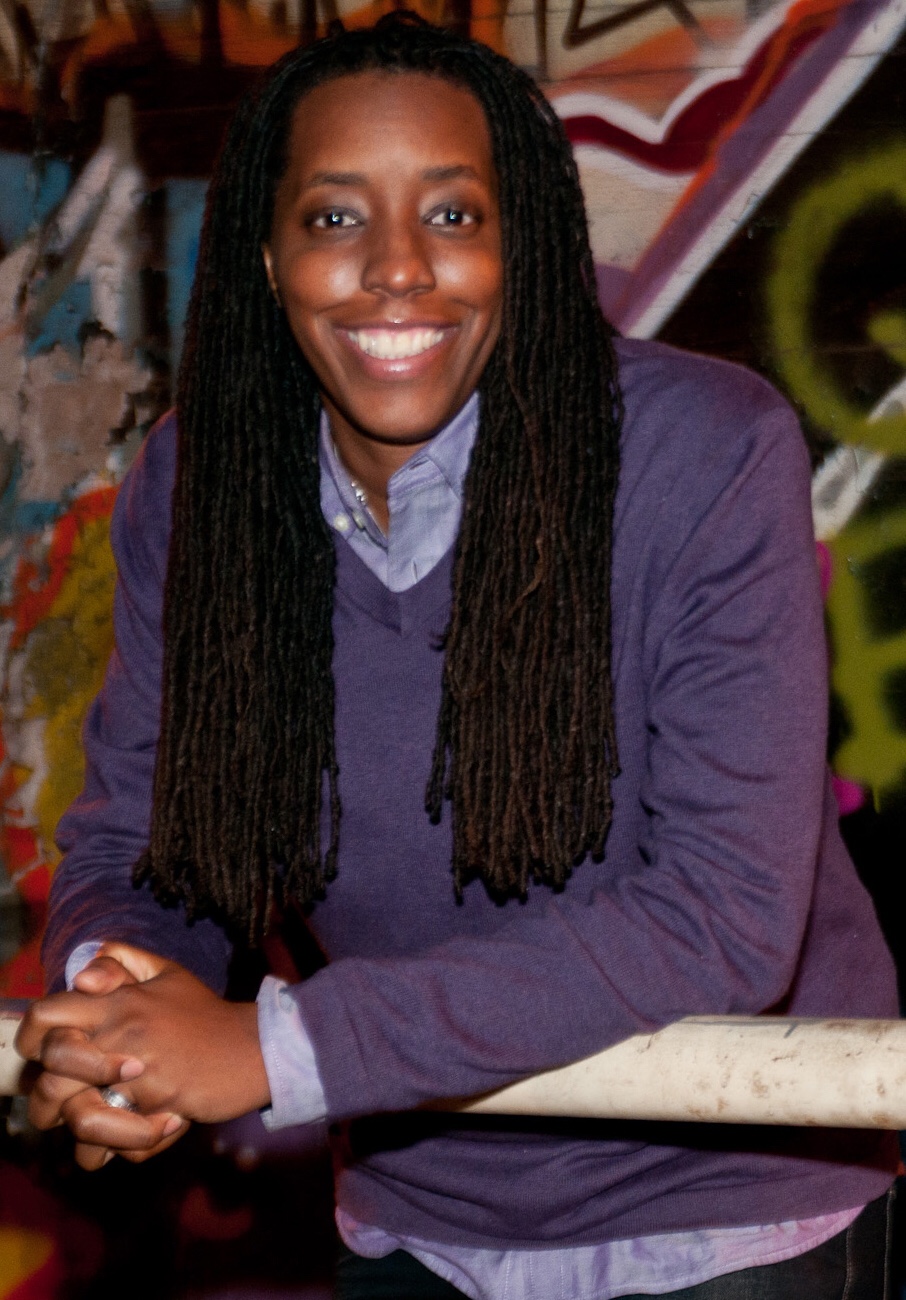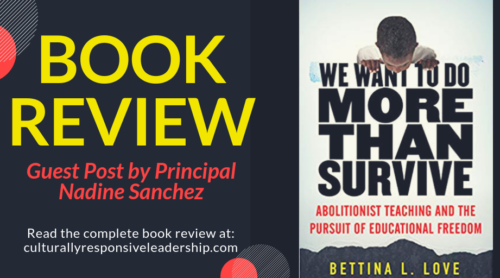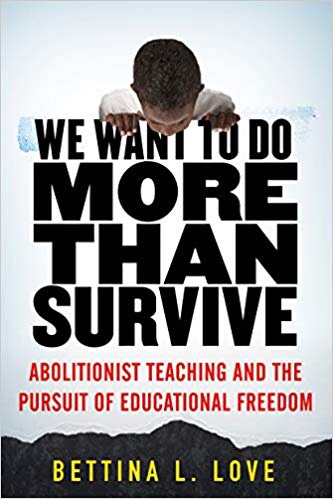Freedom Dreaming – Book Review – We Want to Do More Than Survive
What happens when students or color go beyond simply surviving the onslaught of assimilation and discrimination in public education? Bettina Love eloquently invites for to make a deeper commitment to action. Read this book review by Nadine Sanchez.

Overview
Bettina L. Love’s book, We Want to Do More Than Survive: Abolitionist Teaching and the Pursuit of Educational Freedom provides a cutting analysis of current systems intentionally designed to fail and “spirit murder” children of color. Love writes with passion and pride: a call to action for educators who claim to love all children. This book is definitely not for the fragile, but as Joe Truss wrote to me once “we ain’t never been fragile.”
I started reading this book shortly after receiving my pre-ordered copy in the mail, after hearing Love speak in Newark, NJ. I was moved by her energy, intelligence, and deep love for our children. This book was no lie, hard to put down; the way she gave so much of her personal story to the reader, and how she broke down the business of schooling for children of color.
Surviving
Bettina L. Love challenges education reform that has been designed to keep black and brown children surviving, rather than thriving through her call to action. She makes explicit what educators of color have always known and what education reformers have deliberately left out of the conversation:
“The achievement gap (sharecropping) is not about White students outperforming dark students; it is about a history of oppression and injustice…It is one of the fallacies of justice to know that the achievement gap is due to race and class and yet never proclaim racism and White rage as the source of the achievement gap.”
As I read her book, it was as if she was speaking to me and demanding my attention. Love warns the reader against gimmicks that intend to “spirit murder dark children.” She is critical toward character ed programs and charter school corporations that push grit and resilience on dark children, subjecting students to cruel anti-black “hunger games” that force compliance. She argues against white-washed reforms and educator training programs that ignore the systems that continue to make our schools places of harm and injustice for dark children.

Created in the Void
Love uses the word “dark” to describe non-White children, reminding the reader how skin color has been at the root of systematic disenfranchisement and state-sanctioned abuse. She also challenges the perception of the word “dark” as she explores black brilliance through resistance, art, and music. She writes “we have created in the void, defiant of country’s persistent efforts to kill and commodify us.” Throughout the book, she weaves in her story of coming up, drawing connections between liberation pedagogy and the individuals, teachers, and community-based institutions that helped guide the way.
Rethinking Accountability
I questioned my understanding of accountability as I read this book. She writes “As educators, we need to think of accountability beyond testing…and in terms of human suffering” As a principal of an elementary school with black and brown children, at times I had to put the book down because it was just too much. It was everything I knew and felt, but to hear it through Love’s voice I became angry. Angry at myself because I know I can do better but didn’t all the time because I have hesitated, fearful as a new principal.
Reading her book made me reflect on every single thing I’ve put to action from school-wide plans, instructional mandates, even cafeteria duty. Am I setting up my students to thrive or simply survive? Are my children truly mattering within the walls of my building? Love has given me new lenses from which to look through and now I can’t look away.
Freedom Dreaming
Although Love states that education alone won’t free children of color, this book should be required reading for all preservice teachers, educators and administrators who dare to take part in the lives of our children. Here a few questions to consider:
- Are we bold enough to engage educators in learning on the history of the US and how it manifests in our teaching and schooling practices?
- Will we reject professional development that checks off boxes, and instead immerse ourselves in the muddy, beautiful work of culturally responsive pedagogy?
- Do we have the will to lead courageous conversations in schools despite the palpable discomfort felt by colleagues?
Love demands that we tear it all down and do it differently – in the name of love.
Nadine Sanchez, is a Principal in New Jersey. We connected on twitter and she was down to write a review of Bettina’s book. I was glad to read her reflections and help more educators hear her thoughts.


